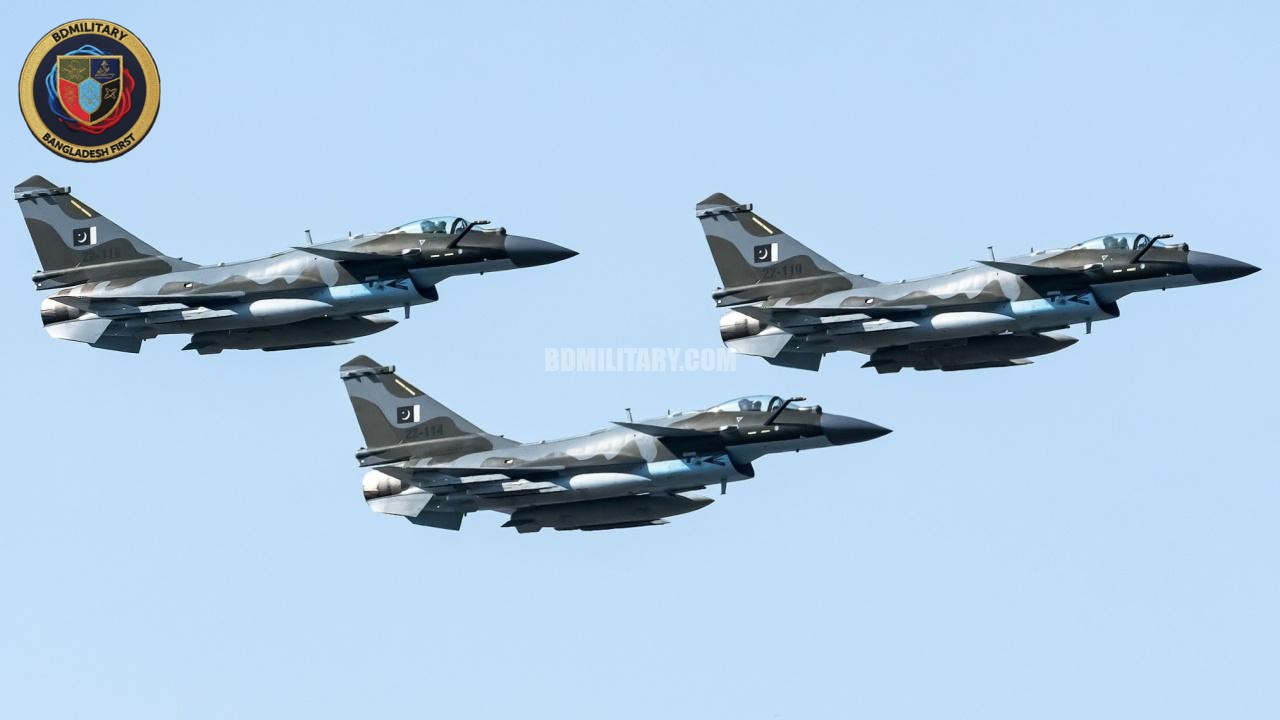Dhaka advances major defence acquisitions to strengthen deterrence and self-reliance
Bangladesh’s Foreign Affairs Adviser Md Touhid Hossain has dismissed concerns over potential US sanctions following reports that Dhaka is advancing discussions to acquire a new generation of Chinese weapon systems.
Responding to questions about possible repercussions under the US Countering America’s Adversaries Through Sanctions Act (CAATSA), Touhid Hossain said Bangladesh maintains “balanced relations with all” and is “not leaning toward anyone.” He added confidently, “I do not think we will face any sanctions.”
His remarks come amid growing indications that Bangladesh is moving ahead with substantial arms procurements from China aimed at strengthening its air defence and land warfare capabilities. Defence officials have hinted that the planned acquisitions include J-10CE multirole fighter jets, long-range surface-to-air missile systems, and advanced surface-to-surface missile and artillery platforms.
The new systems are expected to provide Bangladesh with a formidable increase in deterrent capability, particularly in response to evolving security threats along its borders with India and Myanmar. The inclusion of the J-10CE fighter — capable of beyond-visual-range engagement and precision strike missions — would mark a major leap in the Bangladesh Air Force’s combat aviation power, complementing existing fleets sourced from both Western and Chinese suppliers.
Similarly, the procurement of modern long-range air defence and missile systems would represent a significant doctrinal shift for the Bangladesh Armed Forces, enhancing its ability to defend key installations and counter aerial and missile threats.
Analysts note that since these acquisitions are not directed against the United States or its allies, Washington is likely to turn a blind eye to Dhaka’s purchases from Beijing. In reality, there is little the US can do to obstruct the deals, though it may respond by offering its own defence cooperation packages or sales of American systems to maintain influence within Bangladesh’s armed forces.
Adding further depth to the growing strategic partnership, China is also completing a new factory in Bangladesh to produce various types of unmanned aerial vehicles (UAVs) under a joint venture with the Bangladesh Air Force. The facility — scheduled for completion by December 2025 — will mark the first domestic production of military drones in the country, providing an indigenous capability for reconnaissance, surveillance, and potential combat applications. The project represents a major step towards long-term self-reliance in defence manufacturing and a milestone in the country’s evolving military-industrial base.
Dhaka’s position underscores its longstanding commitment to a non-aligned and balanced foreign policy, maintaining strategic autonomy while developing robust defence capabilities to safeguard its sovereignty.
Despite occasional speculation about external pressure, Bangladesh has repeatedly affirmed that its military acquisitions are guided solely by national interest and operational necessity — not geopolitical alignment.
As regional military dynamics continue to evolve, the latest developments suggest Bangladesh is determined to sustain credible deterrence and modernise its forces through diverse partnerships, with China remaining a key strategic defence partner.

Amit Bhattacharya is a leading defence procurement expert with deep expertise in modern weapon systems and military hardware acquisition. Over more than a decade, he has collaborated with top defence contractors and strategic research institutions, delivering incisive analysis on procurement frameworks, capability development, and technology integration for armed forces worldwide. Amit bridges the gap between operational requirements and industrial capacity, providing authoritative evaluations of modernisation programmes, defence budgets, and acquisition reforms in both established and emerging defence markets. He leads the Defence Procurement and Defence Industry sections at BDMilitary, shaping strategic discourse on defence innovation. Amit earned his Master of Policy and Governance (MPAG) from the University of Canterbury, New Zealand, complementing his practical expertise with advanced policy and governance insight.


